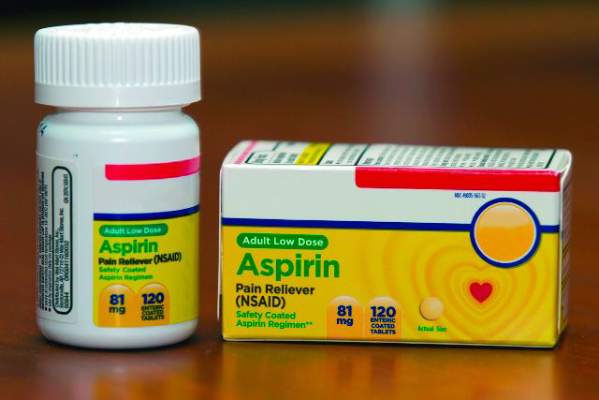FROM THE AHA SCIENTIFIC SESSIONS
Low-dose aspirin does not appear to reduce the risk of cardiovascular events in individuals with type 2 diabetes but without preexisting cardiovascular disease, according to a study presented at the American Heart Association scientific sessions and published simultaneously in the Nov. 15 edition of Circulation.
In the long-term follow-up of participants in an open-label controlled trial, Japanese researchers followed 2,539 patients with type 2 diabetes who were randomized to daily aspirin (81 mg or 100 mg) or no aspirin, for a median of 10.3 years to see the impact on the incidence of cardiovascular events.
Yoshihiko Saito, MD, of Nara Medical University, Kashihara, Japan, and coauthors noted that while results from randomized clinical trials support the benefits of low-dose aspirin for secondary prevention - and guidelines advocate their use for primary prevention in people with diabetes over a certain age or with cardiovascular risk factors – there is little evidence supporting low-dose aspirin as primary prevention in patients with diabetes.
In their study, they found that a daily regimen of low-dose aspirin was not associated with a significant change in the risk of cardiovascular events including sudden death, fatal or nonfatal coronary artery disease, fatal or nonfatal stroke, and peripheral vascular disease (hazard ratio, 1.14; 95% confidence interval, 0.91-1.42). They also found no significant difference between the two groups in secondary outcomes, which were a composite of coronary artery, cerebrovascular, and vascular events.
This lack of impact persisted even after age, sex, glycemic control, kidney function, smoking status, hypertension, and dyslipidemia were accounted for, and it was also seen in sensitivity analyses on the intention-to-treat cohort.
However, the investigators did find a significantly higher rate of gastrointestinal bleeding in patients taking aspirin, compared with the control group (2% vs. 0.9%, P = .03) but no difference in the rate of hemorrhagic stroke.
“Meta-analyses in patients with diabetes have reported that aspirin has a smaller benefit for primary prevention than in general populations, although patients with diabetes are at high risk for cardiovascular events,” the authors wrote. “It seems there are differential effects of low-dose aspirin therapy on preventing cardiovascular events in patients with and without diabetes.”
The study was supported by the Ministry of Health, Labour, and Welfare of Japan and the Japan Heart Foundation. Eight authors declared funding, grants, honoraria, and other support from the pharmaceutical industry. No other conflicts of interest were declared.





